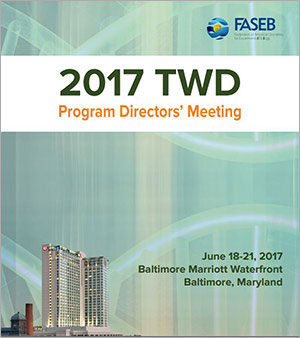 The 2017 Training, Workforce Development, and Diversity (TWD) Program Directors’ Meeting, organized through a grant to the Federation of Associations for Experimental Biology, took place June 18-21 in Baltimore. This biennial meeting brought together the community of faculty, staff and administrators who manage TWD undergraduate and predoctoral training programs across the nation to network, share best practices for program improvement and connect with NIGMS staff. This year, participants presented more than 100 posters. Plenary sessions and keynote talks described innovative approaches for training and evaluation, efforts to enhance diversity in the biomedical workforce and more.
The 2017 Training, Workforce Development, and Diversity (TWD) Program Directors’ Meeting, organized through a grant to the Federation of Associations for Experimental Biology, took place June 18-21 in Baltimore. This biennial meeting brought together the community of faculty, staff and administrators who manage TWD undergraduate and predoctoral training programs across the nation to network, share best practices for program improvement and connect with NIGMS staff. This year, participants presented more than 100 posters. Plenary sessions and keynote talks described innovative approaches for training and evaluation, efforts to enhance diversity in the biomedical workforce and more.
Highlights included:
- Alison Gammie, director of NIGMS’ TWD division, outlined the new predoctoral T32 funding opportunity announcement (FOA) in her presentation. The FOA will emphasize cultivating a diverse pool of well-trained scientists and will focus on skills and career development, the importance of scientific rigor and reproducibility, and the value of inclusive and supportive training environments. It is scheduled for publication this fall.
- Principal investigators of administrative supplements to NIGMS predoctoral training grants presented their approaches to modernizing biomedical graduate education through increased focus on scientific rigor, career and skill development, and training opportunities.
- Melanie Sinche, director of education at the Jackson Laboratory for Genomic Medicine and author of “Next Gen PhD: A Guide to Career Paths in Science,” shared her research on recent STEM Ph.D. graduates’ career pathways. She found that the majority of recent STEM Ph.D. graduates who responded to her survey expressed satisfaction with their work, and they chose their employment primarily for “intellectual challenge” and “flexibility.”
- Erin Dolan, a professor at the University of Georgia, talked about effective strategies for science education. Citing a variety of references, Dolan presented on how the research training community can help students develop interests and careers in the sciences by incorporating models from educational research and social cognitive career theory. This approach is intended to nurture greater enthusiasm for science because it’s based on how students learn and make career decisions. Later, members of the Diversity Program Consortium’s Coordination and Evaluation Center led a workshop on evaluation techniques and shared some tools with attendees that may aid in more effectively evaluating training programs.
- In his Message from the Director, Jon Lorsch included an overview of ongoing NIGMS priorities, including the expansion of the Maximizing Investigators’ Research Award (MIRA) program. He also announced that NIGMS is the new home for the Science Education Partnership Award (SEPA) program, which supports educational and career activities for pre-K to grade 12 students, as well as other public outreach programming. SEPA strongly complements the rest of NIGMS’ workforce diversity and training portfolio. Examples of SEPA projects
 include mobile laboratories
include mobile laboratories  that bring science to rural communities, professional development
that bring science to rural communities, professional development  for teachers and media-based projects like the PBS NewsHour Student Reporting Labs
for teachers and media-based projects like the PBS NewsHour Student Reporting Labs  .
.
To view more of the presentations and to access abstracts for the poster sessions, please visit the 2017 TWD Program Directors’ Meeting resources page.


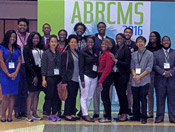
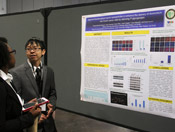
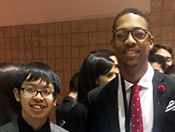
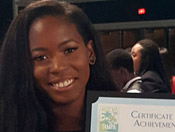
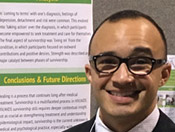
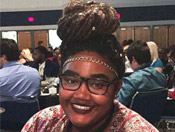
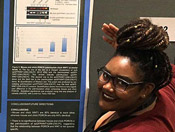
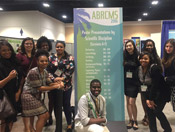
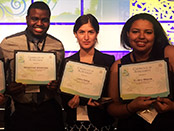
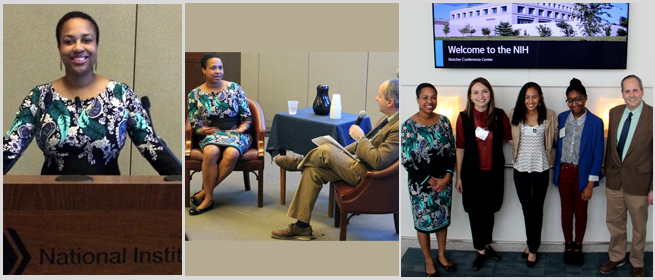
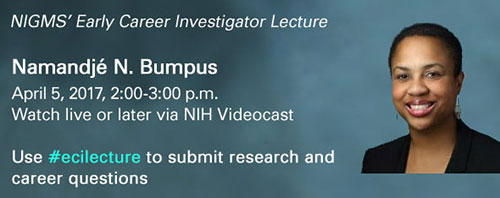
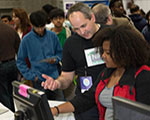 A few weeks ago, 23 NIGMS volunteers and I spent an amazing day with thousands of highly engaged kids, their parents and other science enthusiasts of all ages at the Washington, DC, Convention Center. We were participating in the USA Science & Engineering Festival, the largest STEM event in the nation.
A few weeks ago, 23 NIGMS volunteers and I spent an amazing day with thousands of highly engaged kids, their parents and other science enthusiasts of all ages at the Washington, DC, Convention Center. We were participating in the USA Science & Engineering Festival, the largest STEM event in the nation.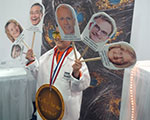
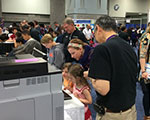 I encourage you to share your own enthusiasm for science with young people whenever you have the opportunity. Whether you judge a science fair, speak at a career day or have students visit your lab, you put a human face on science and help students see it as an exciting, fulfilling and worthy career choice.
I encourage you to share your own enthusiasm for science with young people whenever you have the opportunity. Whether you judge a science fair, speak at a career day or have students visit your lab, you put a human face on science and help students see it as an exciting, fulfilling and worthy career choice.